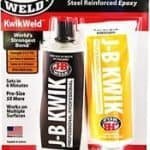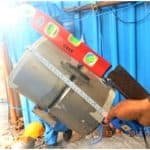UK Welding Codes explained
Since the UK’s departure from the European Union, the landscape of “British Standards” has become a hybrid of traditional BS, harmonized EN, and international ISO codes. While the prefix has changed to BS EN ISO, the technical requirements remain largely aligned with international best practices.
Understanding which code applies to your specific industry—whether it’s structural steel, pressure vessels, or aerospace—is the first step in ensuring legal and structural compliance.
Welding is an essential component in the construction and engineering industries, and it is critical that welding is performed to the highest standards to ensure safety and reliability. In the United Kingdom, the welding industry is regulated by a series of codes and standards that outline the best practices and techniques for welding.
Introduction to UK Welding Codes & Standards
UK Codes refer to British Standards, a set of standards and codes developed by the British Standards Institution (BSI) for various industries, including construction, engineering, and manufacturing.

These organizations work together to develop and maintain a comprehensive set of welding codes and standards that provide the industry with guidelines for welding techniques, materials, and quality control.
These codes provide guidelines and best practices for various aspects of these industries, including materials, products, services, and processes.
BS Codes cover a wide range of topics, including quality control, safety, and technical requirements.
They are widely used in the UK and other countries, and are designed to ensure consistency, safety, and reliability in the industries they regulate.
List of UK Welding Codes & Standards and their Applications
List of UK Welding Codes and their Applications
1. BS EN ISO 9606-1:2013 – Qualification testing of welders – Fusion welding This code outlines the requirements for the qualification of welding personnel, including welding operators, welding supervisors, and welding coordinators.
2. BS EN ISO 15614-1:2017 – Specification and qualification of welding procedures for metallic materials – Welding procedure test.
This code outlines the requirements for the development and qualification of welding procedures, including the selection of welding processes, materials, and welding consumables.
3. BS EN ISO 1090-2:2008 + A1:2011 – Structural steel and aluminum structures – Part 2: Technical requirements for steel structures.
This code outlines the technical requirements for the design, fabrication, and installation of steel structures, including welding requirements and quality control procedures.
4. BS EN ISO 15609-1:2004 – Specification and qualification of welding procedures for metallic materials – General rules.
This code provides a comprehensive overview of the requirements for welding procedure specifications and qualifications, including the selection of welding processes, materials, and welding consumables.
5. BS EN ISO 14731:2017 – Welding coordination – Tasks and responsibilities.
This code outlines the responsibilities and tasks of welding coordinators, including the development of welding procedures, quality control, and personnel training.
6. PD5500 – Specification for unfired fusion welded pressure vessels.
This code provides guidelines for the design, fabrication, and inspection of unfired fusion welded pressure vessels, including requirements for welding procedures, materials, and quality control.
7. BS 499-1:1997 – Steel, wrought and cast – Terminology, classification and methods of mechanical testing.
This code provides definitions and classifications for various types of steel, including cast and wrought steel, and outlines methods for mechanical testing.
8. BS 4515-1:1999 – Specification for wrought aluminum and aluminum alloys for fusion welding.
This code outlines the requirements for the selection and use of aluminum and aluminum alloys for fusion welding, including welding procedures, materials, and quality control.
9. PD 6705-2 – Specification for the qualification of welding procedures and welders for the welding of pipelines and pipelines components in the United Kingdom offshore oil and gas industry.
This code provides guidelines for the qualification of welding procedures and welders for the welding of pipelines and pipeline components in the United Kingdom offshore oil and gas industry, including requirements for welding procedures, materials, and quality control.
10. PD 6705-3 – Specification for the qualification of welding procedures and welders for the welding of pipelines and pipelines components in the United Kingdom offshore oil and gas industry – Part 3: Arc welding.
This code provides guidelines for the qualification of arc welding procedures and welders for the welding of pipelines and pipeline components in the United Kingdom offshore oil and gas industry, including requirements for welding procedures, materials, and quality control.
🏛️ 1. Structural Steel & Aluminium
Mandatory for compliance with UK Construction Products Regulations.
- BS EN 1090 Series (Execution of steel structures and aluminium structures)
- BS EN 1090-1: Requirements for conformity assessment of structural components (Legal framework for UKCA marking).
- BS EN 1090-2: Technical requirements for steel structures. (The “Bible” for structural welding).
- BS EN 1090-3: Technical requirements for aluminium structures.
- BS EN ISO 3834 Series (Quality requirements for fusion welding)
- Often required by BS EN 1090 to prove a fabricator’s capability.
- Part 2: Comprehensive quality requirements (High safety risk).
- Part 3: Standard quality requirements.
- Part 4: Elementary quality requirements.
🛢️ 2. Pressure Vessels & Boilers
The UK uses a dual system: “Harmonised” EN standards and the legacy “PD” series.
- PD 5500:Specification for unfired fusion welded pressure vessels.
- Status: A “Published Document” (not a full EN standard) but widely preferred in the UK oil & gas / nuclear sectors for its robustness and conservative safety margins compared to ASME.
- BS EN 13445 Series:Unfired pressure vessels.
- The UK/European alternative to ASME VIII. It allows for advanced design-by-analysis methods that can result in lighter vessels than PD 5500.
- BS EN 12952 / BS EN 12953: Watertube and Shell boilers welding requirements.
🔧 3. Piping & Pipelines
- BS EN 13480: Metallic industrial piping.
- BS 4515-1: Specification for welding of steel pipelines on land and offshore (Carbon/Manganese steels).
- BS 2633: Class I arc welding of ferritic steel pipework for carrying fluids. (Critical high-pressure/temp pipework).
- BS 2971: Class II arc welding of carbon steel pipework. (Lower pressure/temp).
👨🏭 4. Welder & Operator Qualification
Who is allowed to weld?
- BS EN ISO 9606 Series: (Replaced the old BS 4872 / EN 287)
- Part 1: Steels.
- Part 2: Aluminium.
- Part 3: Copper.
- Part 4: Nickel.
- Part 5: Titanium.
- BS EN ISO 14732: Qualification of welding operators and weld setters for mechanized and automatic welding.
- BS 4872: Specification for approval testing of welders when welding procedure approval is not required. (Still used for lower-tier general fabrication where structural safety is not critical).
📝 5. Welding Procedure Qualification
Proving the “recipe” works.
- BS EN ISO 15614 Series: (Specification and qualification of welding procedures)
- Part 1: Arc and gas welding of steels and arc welding of nickel. (The most common procedure standard in the UK).
- Part 2: Arc welding of aluminium.
- BS EN ISO 15610 / 15611 / 15612: Alternative qualification methods (using tested consumables, previous experience, or standard procedures).
✈️ 6. Aerospace
- BS ISO 24394: Welding for aerospace applications. Qualification test for welders and welding operators.
- CAA (Civil Aviation Authority) CAP 553: BCAR Section A8-10 (Approvals for welders in civil aircraft maintenance).
🔍 7. NDT & Inspection
- BS EN ISO 5817: Welding – Fusion-welded joints in steel, nickel, titanium. Quality levels for imperfections. (Defines Level B, C, D criteria).
- BS EN ISO 10042: Arc-welded joints in aluminium and its alloys – Quality levels.
- BS EN ISO 17637: Non-destructive testing of welds – Visual testing of fusion-welded joints.
🧪 8. Consumables & Materials
- BS EN ISO 2560: Covered electrodes for manual metal arc welding (Stick).
- BS EN ISO 14341: Wire electrodes for gas shielded metal arc welding (MIG/MAG).
- BS EN ISO 636: Rods and wires for TIG welding.
Master List of UK Welding Standards (2026)
| Industry / Application | Standard Code | Description & Key Use Case |
| Structural Steel & Aluminium | BS EN 1090-1 | Legal framework for conformity assessment (UKCA Marking). |
| BS EN 1090-2 | Technical requirements for Steel structures (The “Bible”). | |
| BS EN 1090-3 | Technical requirements for Aluminium structures. | |
| Quality Management | BS EN ISO 3834 | Quality requirements for fusion welding (Part 2: Comprehensive, Part 3: Standard). |
| Pressure Vessels | PD 5500 | UK’s preferred spec for unfired fusion welded pressure vessels (Oil & Gas/Nuclear). |
| BS EN 13445 | Harmonized European standard for unfired pressure vessels. | |
| BS EN 12952 / 53 | Water-tube and Shell boilers welding requirements. | |
| Piping & Pipelines | BS EN 13480 | Metallic industrial piping. |
| BS 4515-1 | Welding of steel pipelines on land and offshore. | |
| BS 2633 | Class I arc welding of ferritic steel pipework (High pressure/critical). | |
| BS 2971 | Class II arc welding of carbon steel pipework (General purpose). | |
| Welder Qualification | BS EN ISO 9606-1 | Qualification testing of welders for Steels. |
| BS EN ISO 9606-2 | Qualification testing of welders for Aluminium. | |
| BS EN ISO 14732 | Qualification of welding operators (Robotic/Mechanized). | |
| BS 4872 | Legacy standard for welder approval where a full WPS is not required. | |
| Procedure Qualification | BS EN ISO 15614-1 | Specification and qualification of welding procedures for Steel/Nickel. |
| BS EN ISO 15614-2 | Specification and qualification of welding procedures for Aluminium. | |
| Aerospace | BS ISO 24394 | Welding for aerospace applications (Welders & Operators). |
| CAA CAP 553 | BCAR Section A8-10 (Civil Aviation Authority approvals). | |
| NDT & Inspection | BS EN ISO 5817 | Quality levels for imperfections in Steel/Nickel/Titanium (Levels B, C, D). |
| BS EN ISO 10042 | Quality levels for imperfections in Aluminium. | |
| BS EN ISO 17637 | Non-destructive testing: Visual testing of fusion-welded joints. | |
| Consumables | BS EN ISO 2560 | Covered electrodes for Manual Metal Arc (MMA/Stick). |
| BS EN ISO 14341 | Wire electrodes for Gas Shielded Metal Arc (MIG/MAG). | |
| BS EN ISO 636 | Rods and wires for Tungsten Inert Gas (TIG). |
Conclusion
The UK welding industry is regulated by a comprehensive set of codes that provide guidelines for welding techniques, materials, and quality control.
These codes ensure the safety and reliability of welding, and it is important for welding personnel to have a good understanding of these codes in order to perform their work to the highest standards.
It is also important for employers to provide their welding personnel with the necessary training and resources to comply with these codes and to ensure that welding is performed to the highest standards.
Material Welding is run by highly experienced welding engineers, welding trainers & ASNT NDT Level III bloggers.
We strive to provide most accurate and practical knowledge in welding, metallurgy, NDT and Engineering domains.


